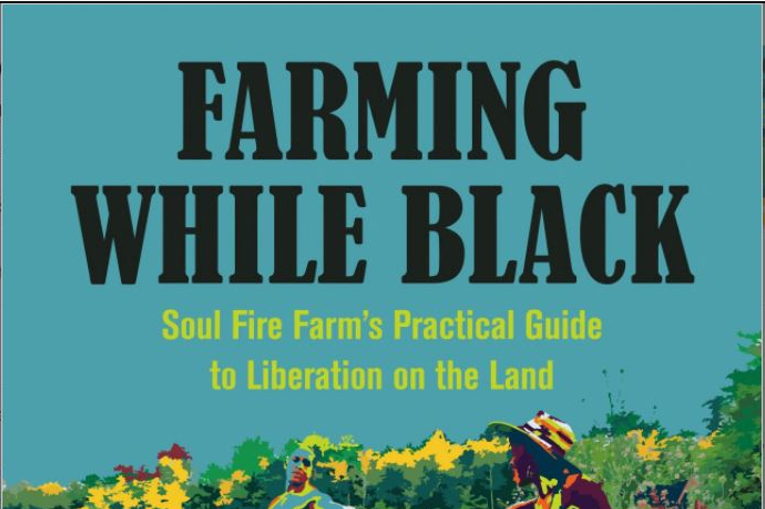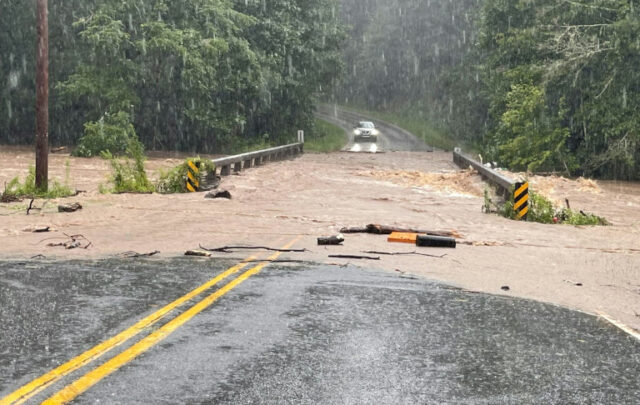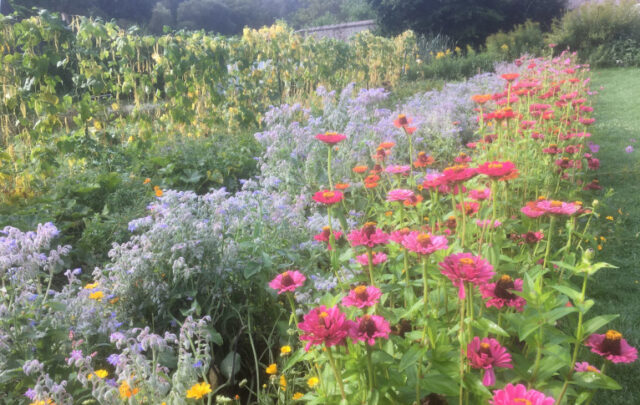“Revolution is based on land. Land is the basis of all independence. Land is the basis of freedom, justice, and equality.” – Malcolm X
This column has been mostly dedicated to the homely task of sharing ideas on how to live a small-scale, self-reliant, ecologically sane, pleasure-filled life while stationed on a small plot of land. The experimental successes and failures are personal and particular, while the shared knowledge is common property. All I know, and all I write about here, is little more than a re-processing and paying forward of what I have picked up from others in the common domain. (In light of that fact, “self-reliance” sometimes strikes me as a silly notion…)
This communal practice of sharing ideas quietly assumes that we already have—or expect to have—long-term access to some land that we can call our own, a secure place where we can daydream and try things out. The truth, however, is that for the average person even a small plot of reasonably arable acreage can be extremely hard to come by. As more and more of us are turned on to the idea of small-scale self-reliance and seek to build resilient local communities, one of the most serious challenges we face is basic access to affordable land.
During these winter months between seasons, when there is not a lot of experimentation taking place outside, my thoughts tend toward bigger-picture issues. The question of land access/ownership has been on my mind lately. How might we change the plot, unplug from the economic status quo, and establish alternative spaces where more of us have the opportunity to live the kind of life we want to live? If you ponder such questions, as I do, then you will soon find yourself in the middle of some exciting new conversations that are revisiting and rethinking an old idea: the idea of the commons.
What is meant by a “commons”? What kind of ideal, alternative model does it represent? Well, if you believe in the right to save and exchange open-pollinated seeds—indeed, if you believe in taking care of the land with future generations in mind—then you can already count yourself a proponent and practitioner of the commons. For most readers of this column, the concept is fundamental to what we do even if the word is not used on a regular basis.
Contrary to popular belief, there is no fundamental conflict between the idea of shared resources and the idea of privately managed property. Property is not viewed as “theft” within the model of the commons. In fact, one function of a commons is to protect not only the land and resources that are shared but also to secure the long-term autonomy of the people who depend on those resources. For example, the Agrarian Trust—a national organization founded by the indefatigable Severine von Tscharner-Fleming —has created an agrarian commons on a vast scale that is designed to help millions of acres of old farm land bypass the conventional real estate market (driven by investors and “developers,”) and instead transition it from the ownership of retiring farmers into the care of a new generation of small-scale farmers. Most of these aspiring farmers could not otherwise afford to get a start on their own.
The model of the commons has also been seen as a promising way to address the socio-economic inequality that is the legacy of generations of structural racism.
Just as there is historical precedent for the commons, there have been past attempts at radical land reform in the United States. When General Sherman met with twenty African-American leaders in January of 1865, they all told him that land ownership was the best way to secure both economic and political freedom for newly freed slaves. Sherman issued Special Field Order No. 15, reserving coastal land in Georgia and South Carolina for Black settlement guarantees. Only six months later, 40,000 former slaves were living on 400,000 acres with army-issued mules. The infamous “40 acres and a mule” experiment was given barely a season to take off. The new president, Andrew Johnson, cleared the land of its newly freed stewards, and the Jim Crow system—premised on a recognition of the deep connection between economic and political power—became the dominant model in both the South and the North for decades to come.
The equally radical Homestead Acts of the late 1800s did not succeed as a reparations project, but they did generate massive amounts of wealth from the sale of government-granted land that has been transmitted over many generations. In the year 2000, it was estimated that nearly a quarter of the adult U.S. population were descendants of the original Homestead Act recipients. Only a tiny fraction of those original recipients were African-American.
While the Homestead Acts were mostly failures from a social justice perspective, there were some notable successes among the early Black homesteaders who received land. Self-organized homesteading “colonies” formed throughout the country, the most famous of which include Nicodemus (in Kansas) and Dearfield (in Colorado). They are inspiring examples of what a marginalized and oppressed people can do if they have something to work with. Most intriguing of all, these historic homesteads seem to have succeeded due in large part to the fact that they were part of small-scale collective endeavors—what we would now call examples of resilient local communities.
Much of this history is reviewed in a stimulating piece published in June 2020 in the journal The Conversation under the title “Land Loss Has Plagued Black America Since Emancipation – Is it Time to Look Again at ‘Black Commons’ and Collective Ownership?” (ed. note previously published on Resilience.org here.) When I read the piece this past summer, I knew immediately that I wanted to contact the authors—Kofi Boone and Julian Agyeman—and talk more about the idea of the commons and about their recent collaborative work.
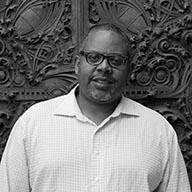
Kofi Boone is Professor of Landscape Architecture and Environmental Planning at North Carolina State University. His work explores the intersection between landscape architecture and environmental justice, and he has published widely in both popular and scholarly media.
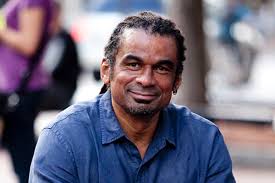
Julian Agyeman is Professor of Urban and Environmental Policy and Planning at Tufts University. He has written or edited 11 books, and he is the originator of the concept of ”just sustainabilities,” a term that is now widely used, and which Agyeman has defined as “the need to ensure a better quality of life for all, now and into the future, in a just and equitable manner whilst living within the limits of supporting ecosystems.”
As a homesteader, I am naturally drawn to the idea of an agrarian commons and to the rich and still undervalued tradition of Black agrarianism (represented by figures such as Fannie Lou Hamer and—who knew?—Malcolm X). As Boone and Agyeman remind us, however, the idea of the commons transcends agrarian ideals, inviting people like me to think within a much broader context. Just as the concept of permaculture is about more than perennials and the plant kingdom, the idea of the commons is about more than just the land. What it is about is dignity, security, social justice, and “a better quality of life for all.”
The following is an edited transcript of my conversation with Kofi and Julian (thank you both once again for generously taking the time to talk with me).
 How would you define the idea of a “commons” for someone who is not familiar with the term? For those who are not familiar with the debate over the concept, is there anything you feel ought to be said in response to the old (and perhaps overly discussed) critique of the “tragedy of the commons”?
How would you define the idea of a “commons” for someone who is not familiar with the term? For those who are not familiar with the debate over the concept, is there anything you feel ought to be said in response to the old (and perhaps overly discussed) critique of the “tragedy of the commons”?
K.B. In this context, a “commons” probably has different layers. There is a cultural layer; a sense that the commons is defined in the context of the cultural needs of Black people, and within the context of racist systems that have reduced the spaces and resources available. There is a material layer in that the idea of a commons is meant to overcome structural barriers to accumulating resources to control land and enable wealth generation. And there is an organizational layer that suggests cooperative ownership through large scale micro investment might be a strategy to overcome the extreme constraints on wealth in Black communities.
The “Tragedy of the Commons” refers to the theories attempting to explain “free riders”. The tragedy is that a commons requires a selfless sense of cooperation and participation, but it doesn’t prevent the opportunity for those who are not contributing fully to still get the benefits of the common interest. I don’t know whether or not this is over discussed (beyond signaling that commons are risky and discouraging their consideration). But I will say that theory was based on observations of White American agricultural practices over a century ago. The cultural imperatives, specifically the ones that have recurred throughout the Black American experience, may suggest that a cultural imperative might impact the idea of the use of a commons.
***
In America, some of the earliest major attempts at reparations and a just land redistribution (the Homestead Acts, “40 acres and a mule,” etc.) were based on a vision of privately owned smallholdings — almost a Jeffersonian vision of the small-scale citizen farmer. Do you see the ideal of a smallholder with private property as being compatible with the collective model of a commons? What would you say are some advantages/limitations of either model?
K.B. The Homestead Act and efforts for reparations through land distribution did not die of natural causes. They were killed by the backlash or rather “Blacklash” that has followed every era of attempts for Black community empowerment through formal government actions. I don’t ground the idea of a commons in the utility of the land outside of its potential to help with stable wealth creation through collective ownership of a material asset. The land could be used for any manner of things, not just the agricultural elements that were the hallmarks of the 1800s. The land could participate in any manner of economic development in the collective interests of Black community owners. I don’t privilege the Jeffersonian idea of stewardship being a surrogate for citizenship.
***
Leah Penniman’s recent book Farming While Black is part of a 21st-century movement to reverse the dramatic 98% decline in the number of Black farmers in the past century. Penniman is addressing the younger generations who will be the new farmers and stewards of the land, and she focuses on the issues of “reskilling” and — perhaps above all — the challenge of making an agrarian lifestyle an attractive and viable option to those who may be two or more generations away from having that connection. Apart from making land easier to access and own, do you have any thoughts on how to “recruit” more young people of color to the very idea of land ownership/stewardship? Or is that something we should even be aiming for?
K.B. Since the end of the Civil War, not just Black folks, but all folks have seen cities and urban areas as places of opportunity. In the case of Black folks, fleeing sharecropping and the oppressive regime of Jim Crow were the drivers of the Great Migration to major American cities in the early 20th century. That and labor exploitation as major industrial employers like Henry Ford were openly appealing to Blacks to move to work in factories to in part resist unionization and labor rights emerging at that time. In total, there has been a century of messaging that life chances, especially for Black people, are higher in cities than in rural and agriculturally-based contexts. However, this has also come with Penniman’s observations on rural land loss and, although there is no single definitive source, a cumulative notion that even though Black people largely live in cities now, they don’t own a commensurate amount of land in cities. The idea of engaging the next generation to re-engage agriculture and a non-urban lifestyle is increasing in visibility and accessibility. I think we are in an early adopter phase and it will depend on how Penniman and others do with providing evidence of a sustainable and engaging life. Agriculture and the sense of accomplishment and self-determination it comes with are increasingly a part of a cultural imperative.
***
This is something of a follow-up to the previous question … I am fascinated by the figure of Fannie Lou Hamer and her short-lived Freedom Farm Cooperative project. Nearly a half century later, her agrarian vision of empowered local economies may seem either prescient or outdated, depending on one’s point of view. Do you see Hamer’s ideas as relevant within current conversations about local economies and a Black Commons?
K.B. Absolutely critical either way. Living from the land in rural settings is extremely difficult. It requires a level of commitment, cooperation, investment, labor, and most importantly access to markets to even break even. With the increased corporate farming footprint, the small family owned, or any other non-corporate owned farm for that matter, is a very difficult proposition. What I think distinguishes Fannie Lou Hamer’s work from others today is her explicit focus on gearing the system to support the poorest and the most economically vulnerable. In many ways, there is a lot more information, resources, and appetite to promote local food systems than there are to support poor rural communities, Black or otherwise. The model is relevant because we don’t have an equivalent focus on measuring the impacts of these efforts on the most economically vulnerable. It’s something to revisit to examine and improve current practices.
***
We are talking a lot these days about taking down monuments and unloading the baggage of our deeply problematic cultural history (dissociating agrarian ideals from the example of Jefferson, for example). This includes symbols and language — “food sovereignty” is starting to replace the older “self-reliance”, for example, and the term just sustainabilities is another addition to our imaginative lexicon. Are there any particular terms or ideologically fraught ways of thinking/talking that you would like to see change, or are happy to see being changed?
J.A. Just as settler-colonialism and racial capitalism have produced a vocabulary and narrative that is often pejorative and exclusive (think: urban blight, redevelopment), we need to decolonize our minds by challenging and ultimately changing these narratives. For example, ‘placemaking’. What are we saying when we embark on a ‘placemaking’ project? We’re saying that your ‘place’ needs a makeover: we need to do this by ‘placemaking’. This is deeply problematic when we see who leads most placemaking projects. Plus, are we really ‘placemaking’ or are we in effect ‘placetaking, from Indigenous peoples, further contributing to their erasure from civic life?
***
What practical advice would you give to a young person today with no land and little to no inherited wealth, who is entering a dire economic situation, but who would nevertheless like to live a sustainable and just life and do something to make this ideal a reality within their lifetime? What are their options?
K.B. There are a lot of efforts happening in real time led by young people that are attempting to navigate this difficult time. History matters and can provide a foundation for the work, but part of it is realizing that you are not alone and that your generation is leading the charge for change. Joining an organization that inspires you might be a way to build relationships, form networks and determine accessible and short-term changes that you can make. The organization need not be directly related to the most dire challenges to sustainability. But gaining experience working with others to tackle social and environmental challenges can be valuable regardless.
***
In your view, how have the events of this year—COVID-19, the new awareness of racial inequity and injustice, the economic collapse—formed a new context for our understanding of a Black Commons and for the role of strong local economies? What kinds of changes do you see taking place in the near term and in the long term, and what changes would you like to see?
K.B. In the litany of strategies to change laws and make publicly shared and funded systems more accountable and accessible, it would be good to also acknowledge the systemic loss of land and other material assets that could build community wealth. Policies and strategies matter. But also the role land plays in wealth creation. The extreme lack of access to information, access, and resources faced by Black communities has been well established. But the reclamation of lessons learned from previous strategies has not occurred outside of smaller conversations. Building, testing, and scaling up ways to leverage collective investment in the land are needed and should be energetically pursued. Change comes from organization and action, but can start with reframing the problem.


